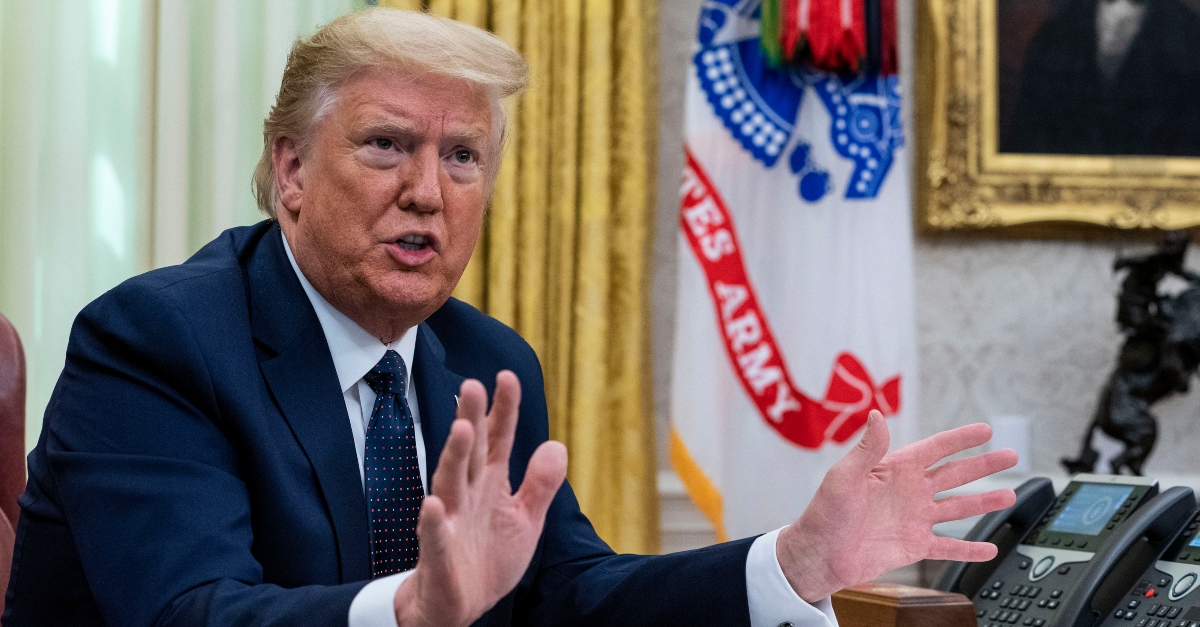
A memo from the Department of Homeland Security (DHS) leaked over the weekend revealed that the U.S. intelligence community has been collecting and reporting information on the activities of U.S. citizens in cities where demonstrations over monuments and statues have taken place, Lawfare reported Monday.
The document showed that DHS’s Office of Intelligence and Analysis (I&A) has been authorized to surveil protest activities “in the context of elevated threats targeting monuments, memorials, and statues.” It also describes the increasingly expansive role the intelligence community is planned to have in mitigating “the significant threat to homeland security” posed by such conduct.
According to the report’s authors, University of Texas law professor Steve Vladeck and Lawfare editor in chief Benjamin Wittes, the DHS memo is directly related to the executive order issued by President Donald Trump last month. DHS interpreted that executive order as “defining the threat to deface monuments as a homeland security matter warranting domestic intelligence collection by the federal government against U.S. persons—even, say, a local public monument without a national profile.”
As previously reported by Law&Crime, the Trump administration sparked outrage after deploying federal agents to quell ongoing protests against police brutality in Portland, Oregon. Reports of the agents using unmarked rental vans and refusing to identify themselves as they arrested protesters, some of whom were nowhere near federal property, only caused further backlash.
Amid widespread criticism over the use of federal agents — which included condemnation from Oregon’s governor and Portland’s mayor — President Trump on Monday refused to back down, announcing plans to send more federal law enforcement to other cities around the nation.
Vladeck and Wittes said the DHS memo essentially categorizes any threat to monuments and statues as a threat to homeland security, thereby requiring intelligence gathering and analysis at the top levels of the federal government.
The report says the memo’s premise is “equal parts unpersuasive and alarming” in its approach to expanding the role of the intelligence community in protecting statues and monuments.
“It is unpersuasive because it should be obvious that vandalism and other damage to monuments, even federal monuments, does not threaten the security of the homeland to any greater extent than most property crimes. We are unaware of prior memoranda that treat offenses against property as the basis for a homeland security investigation—even when the property at issue is federal property,” the report stated.
“The premise is alarming because it uses the cover of minor property damage, whether to federal property or otherwise, to justify intelligence gathering against ordinary Americans—most of whom have nothing to do with the underlying property damage, and many of whom are engaged in the most American of activities: peacefully protesting their government.”
[Photo by Doug Mills/Pool/Getty Images]